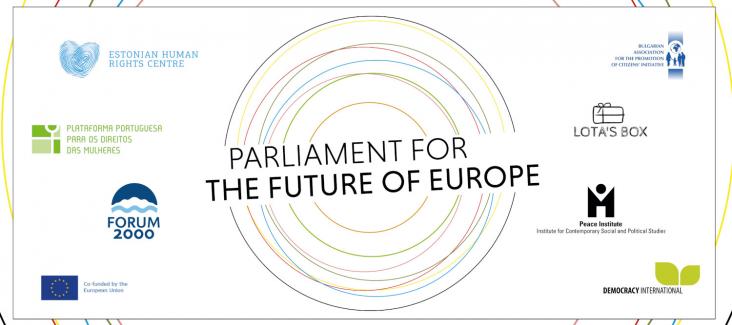Child Protection Policy
Read the Child Protection Policy here
Report and Event Description
Read the event report and description here
Guide for implementation of events: training materials
Sponsored by


Kick-off event in Cologne, Germany on Migration
Parliament for the Future of Europe
Marginalized and underrepresented communities need to have their voice heard in the future of Europe discussions. That’s why the Parliament for the Future of Europe project aims to put vulnerable communities at the center of the debate. Until the European Elections 2024, and with 6 partners from 6 Member States with the lowest voter turnouts in the 2019 European elections, we will scrutinize the proposals of the historic Conference on the Future of Europe and reshape them to be more inclusive and to better meet the needs of vulnerable communities.
On Saturday, 14 January 2023, the kick-off event in Cologne, Germany tackled the topic of migration. The follow propsals are the result of the event.
Funded by the European Union. Views and opinions expressed are however those of the author(s) only and do not necessarily reflect those of the European Union or CERV. Neither the European Union nor the granting authority can be held responsible for them.
